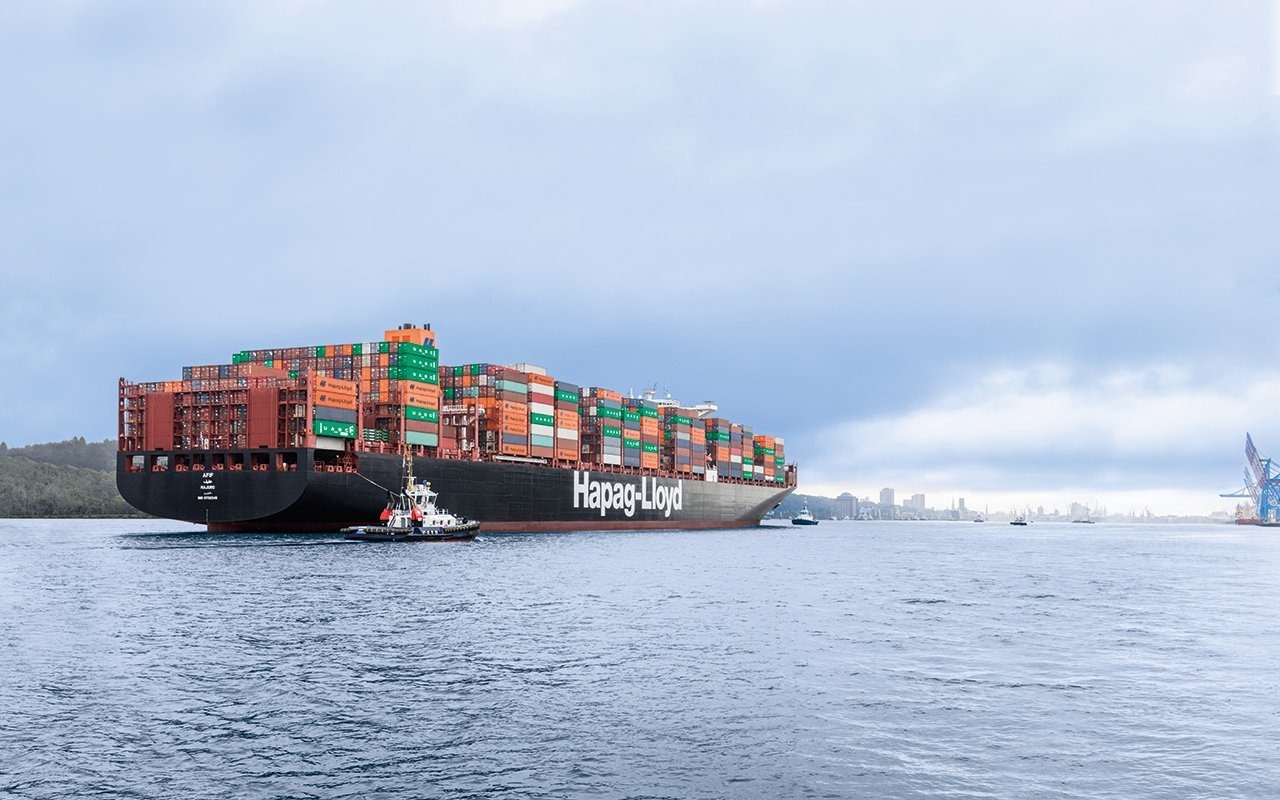
The importance of logistics as an element of competitivity is no longer debatable in businesses, despite investment that is not comparable with this level of recognition. A study carried out by the group Les Échos for the logistics provider Geodis shows that the rise in the importance of challenges linked to customer experience and sustainable development could mean that this sector’s strategic role will become even more important.
Logistics had long been regarded as an inevitable cost centre but is now considered as having become a tool for optimizing processes. The globalisation and the development of e-commerce have further strengthened the strategic role and the complexity of this function. Executives fully understand this because 5 out of 6 believe that it is a key element in their company’s competitivity, according to a survey of 252 executives of companies in industry and distribution carried out by Les Échos Études for Geodis. There is however a caveat: only 1 in 3 have the supply chain on their list of investment priorities.
Marie-Christine Lombard, the CEO of Geodis sees this apparent paradox as an illusion, “In fact, an enormous amount of investment that is labelled “information technology” concerns logistics. In our opinion, this function covers flow management from raw materials through to the finished product that arrive at the end user’s destination, but also product returns for recycling, destruction or exchange. The key to efficient logistics in a system that is this large and complex is transparency: to know what is happening, when, where and at what cost, to ultimately find possible sources of improvement”, is her conclusion.
Improving the customer experience
Companies have a lot to gain because the weight of the cost of logistics varies between 5% and 10% of turnover. Optimizing circuits and means allows for the making of raw economies but the pertinence of logistics is not limited to just that. There is an obvious link between turnover and the ability to supply a product in the right place at the right time. Logistics plays a decisive role in responding to a concern that has become primordial, especially under the driving force of digital economy: the improvement of customer experience, and consequently that of sales, without ever losing sight of the fact that the sometimes paradoxical injunctions of the client-consumer and the client-citizen must be reconciled.
Thomas Berthaud, the logistics and supply chain director for Michelin, was invited to speak during the presentation of the conclusions of the Les Échos Études/Geodis survey and had this to say about an experiment that was carried out in the sector of “tourism” tyres. “We received feedback from our customers concerning the difficulty in finding our products, despite the fact that we had a cumulated stock of between 5- and 6-months’ worth across our different sales points. By rethinking our ecosystem, we were able to gain between 10 and 15 points of availability. We created a new offer for our distributers: if the retailer didn’t have a product in stock and the manufacturer was unable to deliver in the required delay, we proposed an alternative real-time solution from a network of wholesalers. Thanks to digital technology, we integrated into the selection algorithms a short-circuit logic: it is the closest delivery point to the supplier’s point that has priority”, explains Thomas Berthaud.
This project is being progressively deployed in several European countries. It has led to an increase in sales, but also to an improvement in the performance of all involved. Thomas Berthaud made the following warning: “My mission is at the centre of gravity for customer satisfaction and logistics performance. It is vital that we work together not only in the conception of our solutions, but also in the operational management.” With this in mind, the different players have a weekly meeting of half an hour to go over the different key indicators.
An industrial approach
Globalisation followed by e-commerce and the extreme expectations from consumers that are generated by this, have in fact led to a radical change in the very nature of logistics. Marie-Christine Lombard makes the following analysis: “Today’s warehouse is a factory. Logistics is not only a strategic sector but also a means to re-industrialize France.” Olivier Theulle, the director of operations and information technology for FNAC Darty adds: "We are in an industrial style transformation. We need to have “a holistic approach” to operations".
In this new ecosystem, the ability to collect, treat and analyse data makes up a critical skill. New technologies allow for considerable progress to be made in this matter, and to generate a great deal of hope that the forecasting of volumes will progress.
Traditionally, the essential role of a logistics provider then consisted of exploiting the data as a means of imagining the most efficient solutions for implantation and routing, and to follow up operations. However, today’s expectations go much further than this owing to the rise in the concept of corporate social responsibility which encompasses environmental concerns. “It is also the responsibility of the logistics provider not to oversell a given service, for example by proposing a next-day delivery to someone who doesn’t need it”, notes Marie-Christine Lombard.
The irruption of CSR
The survey carried out by Les Échos Études highlighted the importance of Corporate Social Responsibility (CSR), and at the same time indicated a motivation linked to regulatory obligations rather than to ethical considerations. Shippers confirm through experience that it is no longer possible to ignore this subject.
“Today competitiveness and sustainable productivity go hand in hand. Here we recognize the fundamentals of logistics, namely the cost optimisation in euro tonne kilometers, and the sustainability that we are seeking to attain through new technologies linked to means of transport. Motorisation and platooning are for us, some of the avenues to be explored, as are autonomous shuttles. We have just set up an experiment concerning an autonomous shuttle linking one of our manufacturing plants and the largest tyre storage warehouse in Europe”, points out Thomas Berthaud.
The representative from Michelin also insists on his expectations in terms of pooling, including with competitors, depending on the different markets and issues on value sharing. This vision is shared by Geodis, which considers that the optimization margins are substantial. “The sustainability of the supply chain requires better use of existing assets. It is for this reason that in November 2018, we launched our digital marketplace, Upply. Today in Europe, 25% of road capacity remains unoptimized. Many businesses are incapable of fully utilizing their assets because they do not have the required sales forces. Thanks to Upply, the contractors’ capabilities and the shippers needs combine. I am very optimistic about our ability to work within an ecosystem, even with our competitors”, says Marie Christine Lombard. To start with, the subsidiary of Geodis will concentrate its efforts on road haulage. However, it is intended to expand, “to all modes and to cover warehouse square footage”, adds the CEO.
Pierre-Yves Escarpit, the deputy CEO of Cdiscount, confirms the importance of environmental considerations in business strategies. The online retailer’s innovation strategy, which concerns primarily their incubator for supply chain start-ups, named “The Warehouse”, provides several illustrations.
- Reduction in the transport of empty space: Cdiscount has deployed new machines designed by Neopost Shipping, which allow for a 30% reduction in cardboard use, to reduce the size of packaging and to increase the protection of goods.
- Reuse and recycling of packaging: Cdiscount has begun “this long-term project” by testing, since the past days, the reusable packaging from the start-up Living Packets, leaving the warehouse in Cestas.
- Utilise the capacity of the TGVs: Cdiscount has signed an agreement with a subsidiary of Geodis, Geoparts, which enables it to utilise the empty space in the baggage holds of the TGV passenger trains. Pierre-Yves Escarpit tells us, “The very first 100% clean delivery is slated for next month, this will combine pre-routing via a CNG truck, the route by TGV with a final delivery in Paris by Chronopost using an electric vehicle.”
When innovation meets societal aspirations
Innovation is often associated with the deployment of new technologies. Cdiscount is not an exception in this area. One of the most spectacular examples of this is undoubtedly that of Exotec, a start-up that has received strong support from the online retailer, and whose robots are presently encountering success beyond France’s borders. Pierre-Yves Escarpit adds this: “Today, we are carrying out two large scale, long-term projects: the first involves the use of drone delivery in the Nouvelle-Aquitaine region, and the second involves the “Supply Chain of the Future” chair at the engineering institute, Ecole des Ponts Paris Tech.”
However, innovation can go down paths that are even more surprising. The deputy CEO of Cdiscount tells us this: “We support a great deal of “tech” innovation, but we are also open to other good ideas. Two engineers from the food industry came to us with the desire to integrate our incubator with their start-up, Agrikolis. Their idea consisted of installing pick-up points in French farms. Up until now, we had a network of 500 pick-up points mainly in town centres and suburban areas.” The first pick-up point installed in a farm opened in February with results that went far beyond expectations, both in terms of volume and customer satisfaction. “This approach complements the farmers income and recreates social bonds. The network now consists of 60 farms reaching 80 by the end of the year and this figure will be doubled the following year”, announced Pierre-Yves Escarpit.
Price, the #1 criterion for choice
Strategic and innovative, logistics as a function must however confront a daunting challenge that was at the forefront of the survey carried out by Les Échos Études for Geodis: Price remains the #1 criterion for the choice of a supplier. Marie-Christine Lombard points out that, “It is logical that this constraint remains. However, it must be kept in mind that the quest for ever cheaper solutions means a lower salary for those that find themselves at the end of the line, in general the drivers.” A social dimension that is often considered as marginal in CSR approaches, that prefer to focus on sustainable development.
Nevertheless, by gaining in sophistication, the supply chain professions require even greater investment that raise the issue of compensation for the services provided, and the restructuring of the landscape. “It is a sector that will be refocused, and we must be ready for that”, warns the CEO of Geodis.
Our latest articles
-
Subscriber 3 min 24/02/2026Lire l'article -
Hapag-Lloyd - Zim: a shipping deal with geostrategic implications
Lire l'article -
European road freight: the spot market is stalling
Lire l'article



